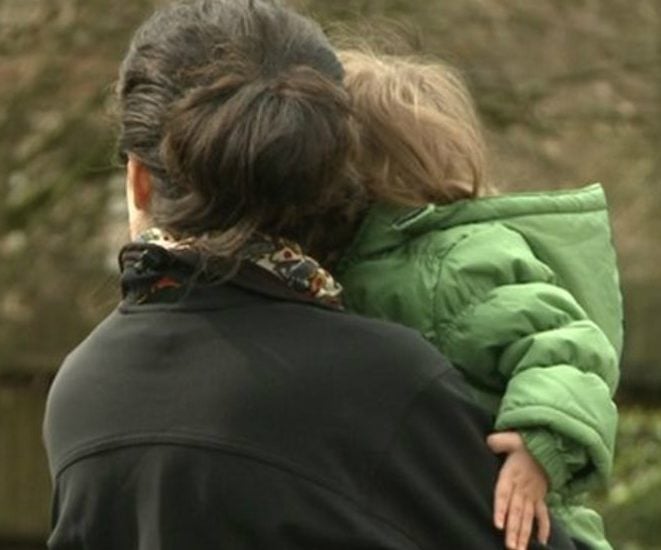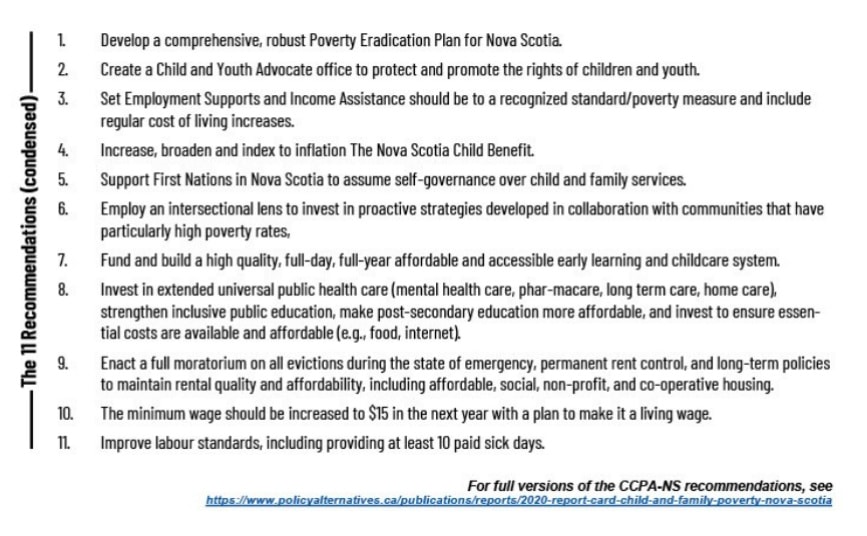
KJIPUKTUK (Halifax) – 41,370 children, one in four, live in poverty in Nova Scotia. For children under six that number is actually almost one in three! Child poverty rates among racialized families and residents of First Nations in Nova Scotia are even higher.
Nova Scotia continues to have the highest rate of child poverty in Atlantic Canada, a rate that actually increased by close to 2 percent in 2019 relative to the previous year. In Canada only Saskatchewan and Manitoba have slightly higher rates. Since 1989 there has been less than 1% reduction in child poverty in our province.
Yet, in the upcoming provincial election these devastating statistics hardly cause a ripple. It didn’t really come up in the debate, and that silence isn’t a new phenomenon.
A group of teachers and allies affiliated with the group Educators for Social Justice (ESJ) called an online press conference this morning to once again try to raise the child poverty profile that it so clearly deserves.
“Teachers are witness to the effects of child poverty all year long, and it’s on the top of our minds all year long. One of our goals today is to push this issue back to the forefront,” said Angela Wyllie, an elementary teacher in the Annapolis Valley.
“Children cannot learn if they are very hungry, if they are worried about coming home and wondering if someone is going to be there to look after them. Our kids’ basic human needs need to be met, in order for them to be able to learn, that only makes sense,” she said.
“The growing poverty rate needs to be an election agenda item for all of us. We have the solutions. We have the recommendations. We just need the political will to actually implement these things. And it is saddening and disgusting really, that it hasn’t happened already,” Wyllie said.
High school teacher Diane Lewis added her voice. Lewis teaches in Cape Breton, one of the areas where child poverty is particularly prominent.
“When you grow up here in Cape Breton, poverty is something that you understand from your childhood. And as teachers we definitely see the effects of poverty, and how that takes away opportunities from children, because their families are struggling to just do the very basic things for them. It takes away a lot of children’s confidence, and even their mental and physical health can be affected by poverty,” Lewis said.
In its press release ESJ is drawing attention to 11 recommendations from the most recent annual report on child poverty, published by the Nova Scotia chapter of the Canadian Centre for Policy Alternatives (CCPA).

That report is calling for measures such as raising welfare and employment support rates, increase (and index to inflation) the Nova Scotia Child Benefit, fund full-day and full year affordable daycare, increase minimum wage to $15, and more.
Dr. Lesley Frank, one of the perennial authors of that annual child poverty report also spoke at the press conference.
Things are only getting worse, Dr. Frank cautioned.
“The income statistics contained in our last report are from 2018, and they were released late last summer. There is new data that has just this week come out, which will be in our next report. What we’re confident in saying is that low income families are experiencing greater hardship now,” she said.
“Nova Scotia is continuing to leave its most marginalized children behind. This needs to be an election agenda item. I urge my neighbours to ask questions at the door about what their candidates will be doing to address it.”
Alec Stratford, executive director, Nova Scotia College of Social Workers, emphasized the need to take political action and start implementing the report’s recommendations.
As the child poverty report card points out, there are 11 recommendations, all of which have been studied and researched. They are not unachievable, we are not a poor province, we can do them,” Stratford said.
“What it takes is moral courage. Not just the moral courage of our politicians to make these decisions. We also need the moral courage of all Nova Scotians to vote for the policies that will change the current environment,” Stratford said.
See also: One in three kids under six: After 30 years there is hardly a dent in Nova Scotia child poverty
Check out our new community calendar!
With a special thanks to our generous donors who make publication of the Nova Scotia Advocate possible.
Subscribe to the Nova Scotia Advocate weekly digest and never miss an article again. It’s free!



